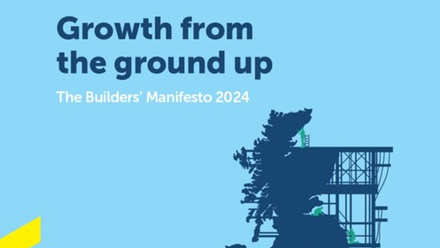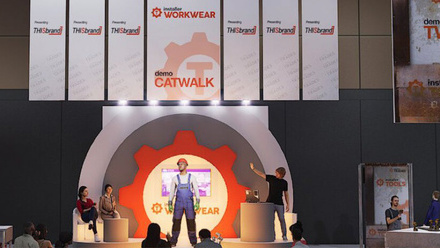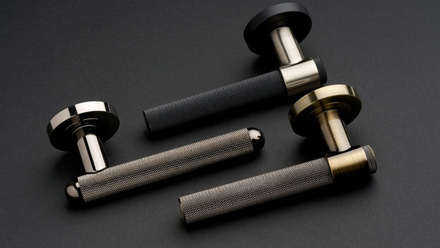*Sponsored content from The Sash Window Workshop.
In recent years there has been increasing awareness about improving energy efficiency and doing more environmentally friendly builds. In addition to heating, windows can play a big part in achieving this, so it is important to check the specification of windows when identifying a window supplier.
Improving energy efficiency with new windows
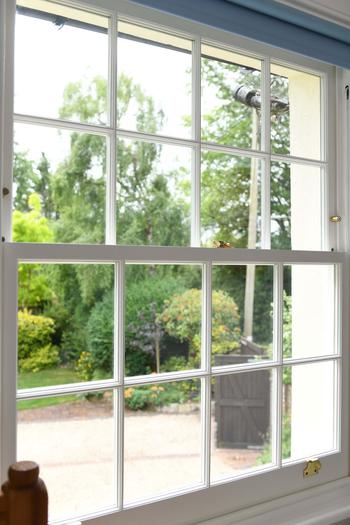
When looking to improve energy efficiency it isn’t enough to install an energy efficient heating system. If the windows are draughty or single glazed, heat will escape from the property and the amount of heating required to keep the building warm will be higher.
Double glazing can make a big difference to energy efficiency. The gap between the two panes of glass in standard double glazing is normally filled with gases that are poor conductors of heat, meaning that heat is retained in the property. Alternatively, FINEO double glazing works using a vacuum seal, providing a good option for an energy efficient slim double glazing.
You don’t have to replace the whole window, providing the frame is in a good condition, new double-glazed sashes can be installed.
One of the easiest ways to check thermal efficiency is to check the energy rating or u-value. If you are looking at u-values, the lower the u-value the more energy efficient the window should be, for energy ratings an ‘A’ rated window is a more energy efficient than a ‘D’ rated window.
It is also important to check the quality of the windows and the installation. Poorly made windows or a bad installation can result in them having gaps and letting in draughts. Check that the company has experience working on similar properties and read their reviews.
Sustainability and windows
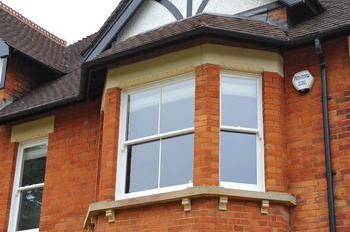
When looking for windows that are more environmentally friendly, it is important to consider the material.
You are probably already aware that plastic isn’t very environmentally friendly, but did you know that choosing a sustainably sourced timber window, rather than a plastic window, will save around 160kg of carbon dioxide (source: Heriot Watt University)?
When identifying windows made using sustainably sourced timber, check whether they are FSC-certified. To achieve this the timber must come from a forest that is managed in an environmentally appropriate, socially beneficial, and economically viable manner. One example of a high quality, sustainable timber is Accoya, which comes with a fifty-year anti-rot guarantee!
Made in Britain
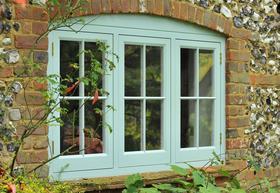
By choosing windows that have been made in Britain, it is easier to manage the quality. Ask for a tour of the workshop to see how the windows are manufactured. This allows you to check that they are made to a high standard and designed to last.
By choosing windows made in Britain, the carbon footprint from transporting the windows will also be reduced.
Obtaining a quotation
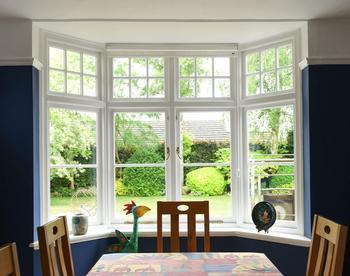
The Sash Window Workshop was established in 1994 and has extensive experience manufacturing and installing high quality, energy efficient timber windows for period properties. They regularly work in Conservation Areas and can also comply with listed building regulations, when required.
All The Sash Window Workshop’s windows are manufactured by their specialist craftspeople in Berkshire to be energy efficient, while also being sympathetic to the architecture style of the building. The company use Accoya as standard and are FSC-certified.
They offer a supply only service across Great Britain, with installation and repair services in London and Southern England.
For more information, or to obtain a quotation, contact The Sash Window Workshop on 01344 868 668.
*Disclaimer: This blog post is sponsored content, which is independent of the FMB. Publication does not constitute endorsement or recommendation from the FMB.


